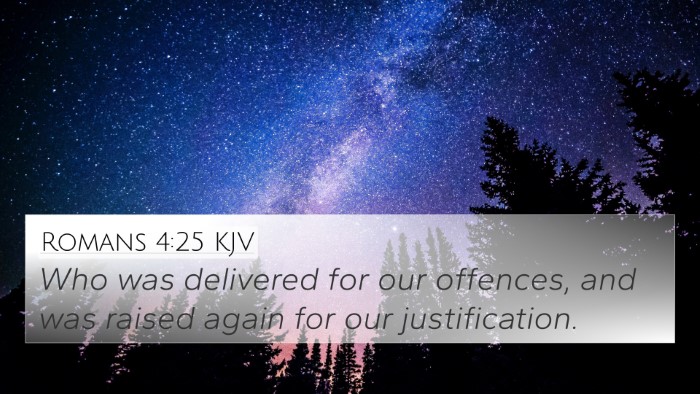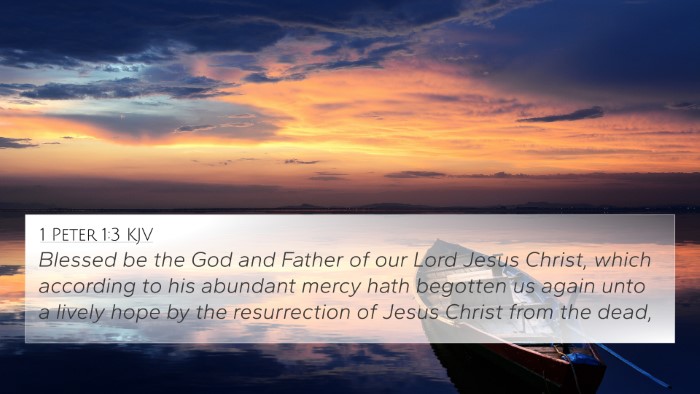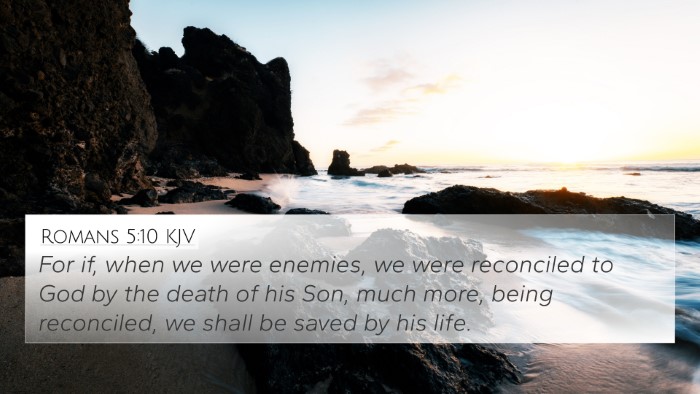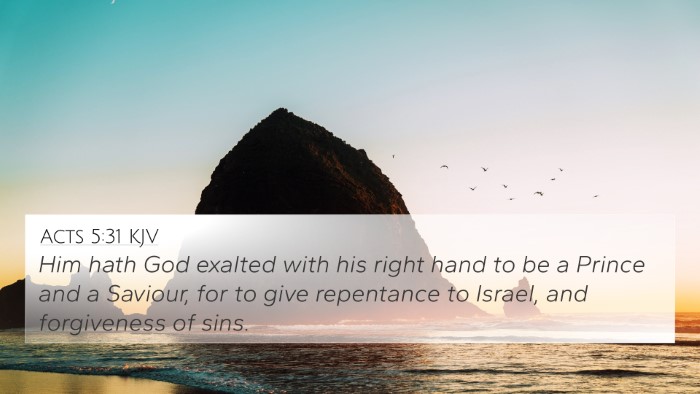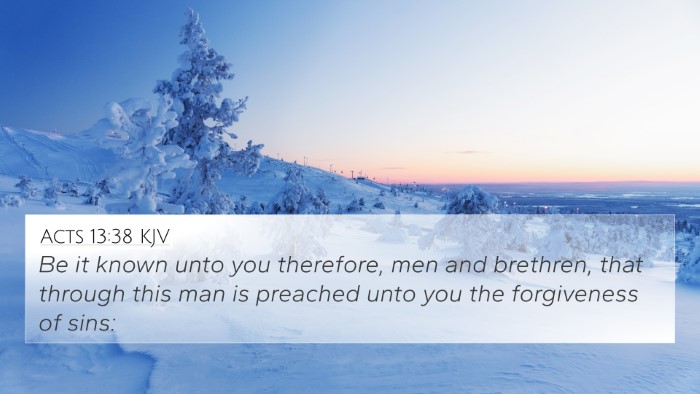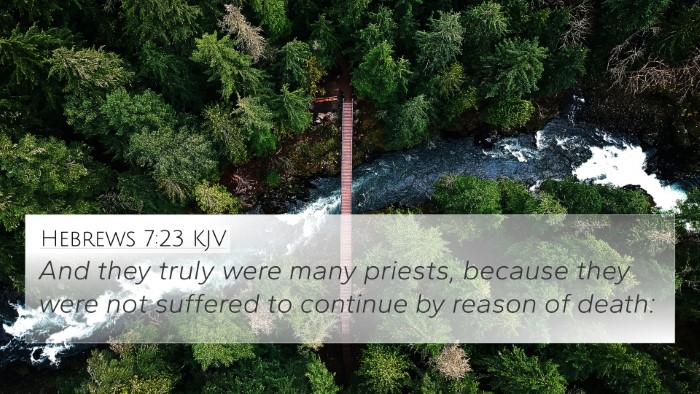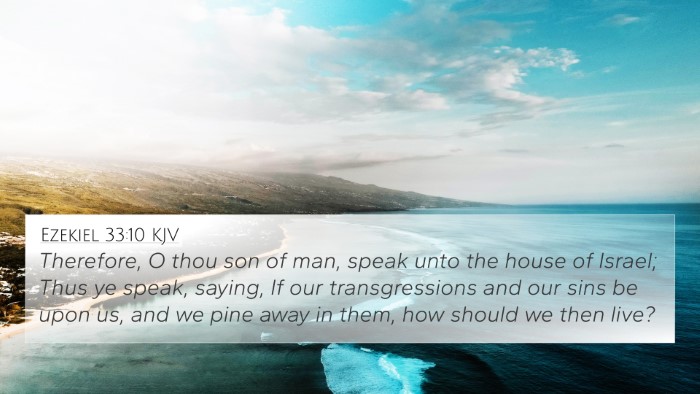Understanding 1 Corinthians 15:17
Bible Verse: "And if Christ be not raised, your faith is vain; ye are yet in your sins."
This verse is a pivotal declaration made by the Apostle Paul in his first letter to the Corinthians. It underscores the foundational belief in the resurrection of Jesus Christ as integral to the Christian faith. Below is a detailed exploration derived from public domain commentaries such as those by Matthew Henry, Albert Barnes, and Adam Clarke.
Meaning and Significance
The Resurrection's Vital Importance
Paul emphasizes that the resurrection of Christ is not merely an event in history; it is the cornerstone of the Christian faith. Without this vital occurrence, believers’ faith is rendered 'vain' or useless.
Commentary Insights
- Matthew Henry: He elaborates that if Christ's resurrection is untrue, then all the preaching and faith of Christians are in vain, suggesting that faith in a dead Christ cannot save anyone.
- Albert Barnes: Barnes points out that this verse reflects the overall theme of Paul's argument: the resurrection validates the entire Christian doctrine. If there be no resurrection from the dead, then Jesus has not risen, leaving believers in their sins.
- Adam Clarke: Clarke emphasizes that sins cannot be pardoned without the resurrection, indicating that the resurrection is necessary for the justification of believers.
Bible Verse Cross-References
To understand 1 Corinthians 15:17 fully, it is helpful to consider cross-references to enhance the understanding of its themes. Below are significant Bible verses that relate closely:
- Romans 4:25 - "Who was delivered for our offences, and was raised again for our justification."
- 1 Peter 1:3 - "Blessed be the God and Father of our Lord Jesus Christ, which according to his abundant mercy hath begotten us again unto a lively hope by the resurrection of Jesus Christ from the dead."
- John 11:25-26 - "Jesus said unto her, I am the resurrection, and the life: he that believeth in me, though he were dead, yet shall he live."
- Philippians 3:10 - "That I may know him, and the power of his resurrection, and the fellowship of his sufferings, being made conformable unto his death."
- Acts 2:31-32 - "He seeing this before spake of the resurrection of Christ, that his soul was not left in hell, neither his flesh did see corruption. This Jesus hath God raised up, whereof we all are witnesses."
- Matthew 28:6 - "He is not here: for he is risen, as he said. Come, see the place where the Lord lay."
- Revelation 1:18 - "I am he that liveth, and was dead; and, behold, I am alive for evermore."
Connections Between Bible Verses
This verse serves as a link between various doctrinal themes throughout the New Testament. It can be interpreted in the context of several theological discussions, including:
- The Justification of Sinners: The resurrection signifies that believers are justified before God, as seen in Romans 4:25.
- The Assurance of Eternal Life: Jesus’ declaration of being the resurrection ensures hope beyond this life (John 11:25-26).
- The Power of God: The resurrection reveals God's mighty power, a theme Paul expounds in Philippians 3:10.
- The Witness of the Early Church: The messages of the apostles confirm the resurrection event, as laid out in Acts 2:31-32.
Comparative Bible Verse Analysis
To grasp the implications of 1 Corinthians 15:17, one can employ a comparative analysis with other Pauline epistles that highlight the significance of the resurrection:
- Galatians 1:1: Paul asserts that he was an apostle, not by human appointment, but by Jesus Christ, hinting at the divine essence of Christ's resurrection.
- Ephesians 1:20: The working of God's power in raising Christ from the dead is a demonstration of sufficient power for believers' salvation.
Thematic Bible Verse Connections
1 Corinthians 15:17 connects strongly with the overall theme of resurrection throughout Christian texts. Below are some thematic connections:
- Redemption and Forgiveness: The resurrection directly ties to the complete removal of sin, a core Christian belief.
- Hope for the Awaited Return: The resurrection assures believers of the future hope of eternal life, echoing themes from Revelation.
Tools for Bible Cross-Referencing
For those engaged in studying Bible cross-references, several resources are incredibly beneficial:
- Bible Concordance: A useful tool to find where specific words occur throughout the scriptures.
- Bible Cross-Reference Guide: Guides often provide commentary on relationships between verses.
- Cross-reference Bible Study: Involves tracing themes and doctrines as interlinked narratives.
Conclusion
1 Corinthians 15:17 encapsulates critical elements of the Christian doctrine regarding resurrection, faith, and sin. Through comprehensive study of cross-references and insights from commentaries, one can achieve a richer understanding of its significance. The resurrection serves not only as a historical event but as the very foundation of Christian belief and hope.



